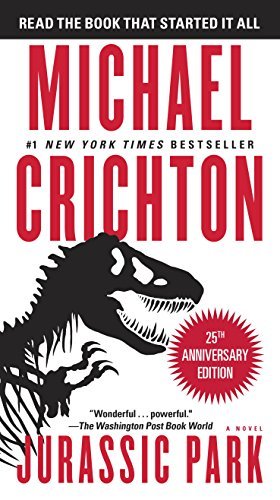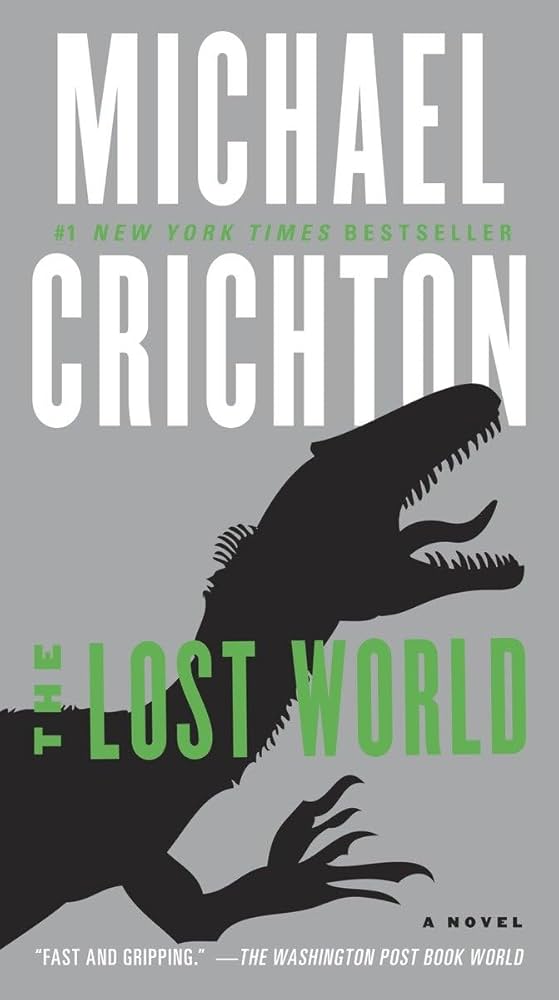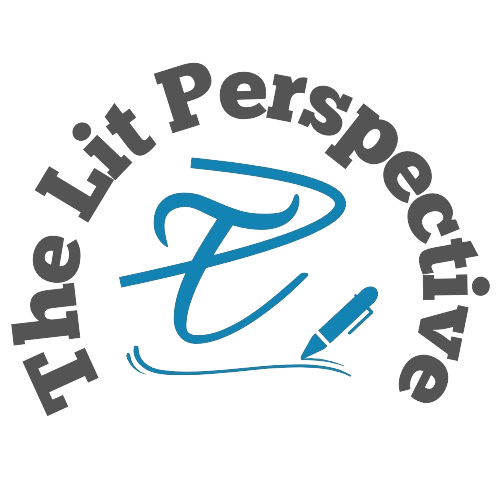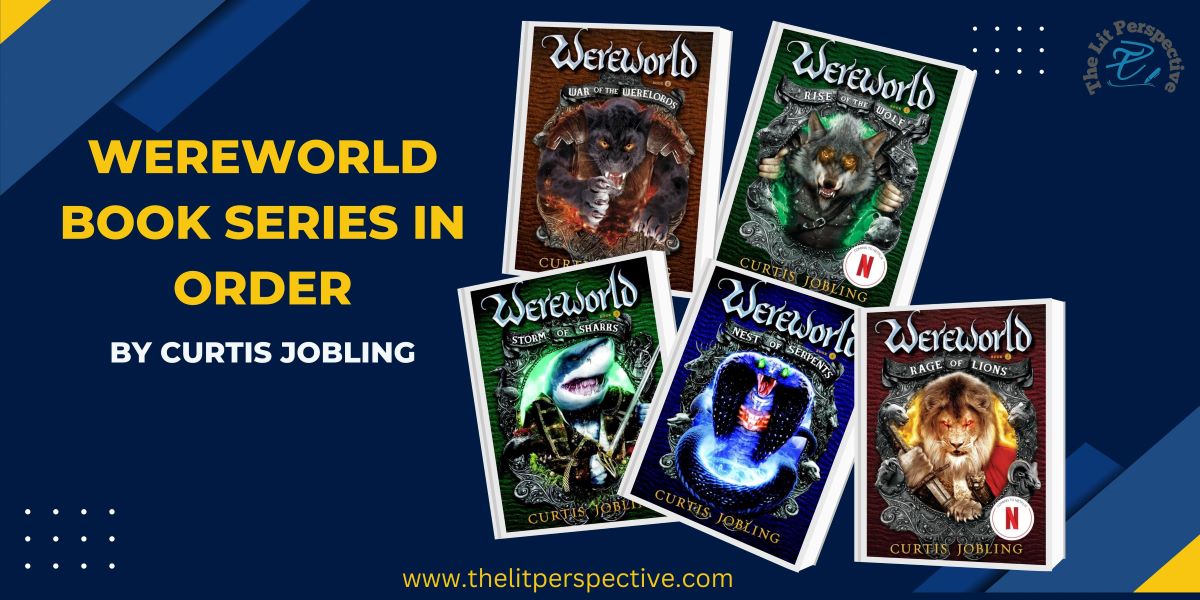TheLitPerspective is your one-stop shop for everything that ignites the spark of curiosity within you.
The Jurassic Park Book Series: A Comprehensive Guide 2025
The Jurassic Park book series, written by Michael Crichton, is a staple of modern science fiction, blending cutting-edge science with thrilling adventure. With two main novels, Jurassic Park (1990) and its sequel The Lost World (1995), Crichton not only shaped the genre but also launched a cultural phenomenon that still resonates today.
While many people associate Jurassic Park with the blockbuster films, it’s the original novels that laid the groundwork for one of the most exciting explorations of science, ethics, and human ambition.
The Origin of Jurassic Park
Crichton was no stranger to exploring the darker side of technological advancements in his work, and the idea for Jurassic Park came from his fascination with genetics and biotechnology. He envisioned a world where humans had the power to resurrect extinct species, and what could go wrong if such power was wielded recklessly.
By blending the thrill of an action-packed narrative with the complexities of science, Crichton created a story that captivated readers and addressed profound ethical questions.
Jurassic Park: A Groundbreaking Sci-Fi Novel

At its core, Jurassic Park tells the story of a wealthy entrepreneur, John Hammond, who uses genetic engineering to bring dinosaurs back to life on a remote island. Hammond’s vision is to create a dinosaur theme park, but things quickly spiral out of control when nature proves to be more unpredictable than anticipated.
The story follows Dr. Alan Grant, a paleontologist, and Dr. Ellie Sattler, a paleobotanist, who are invited to the park for a preview—only to find themselves fighting for survival as the dinosaurs break free of their enclosures.
Crichton’s portrayal of characters like Dr. Grant and Hammond highlights different views on science, ethics, and human control over nature. Grant, as a scientist, respects the power of nature, while Hammond is a businessman driven by profit and hubris.
Read also: Percy Jackson Books in Order
Technological Fears and Ethical Dilemmas in Jurassic Park
One of the central themes in Jurassic Park is the ethical dilemma posed by cloning and genetic manipulation. Crichton uses the dinosaurs as a metaphor for the dangers of humans wielding too much power without fully understanding the consequences.
The novel raises important questions: Just because we can, does it mean we should? What are the risks of playing God with nature? These concerns about biotechnology and the limits of scientific progress remain highly relevant today.
The Lost World: A Thrilling Sequel

The Lost World, published five years after Jurassic Park, picks up where the original left off, with Ian Malcolm (thought to be dead in the first book) returning as the main protagonist.
This time, the plot centers around a second island, Isla Sorna, where more dinosaurs are living in the wild. Malcolm, along with a new team, must navigate this even more dangerous environment.
Read also: Stuart Woods Books in Order
While the sequel follows similar themes, it dives deeper into the chaos of an ecosystem that humans have disrupted and examines the unpredictable outcomes of tampering with nature.
Comparing the Two Books: Jurassic Park vs. The Lost World
Both novels explore humanity’s struggle with power and control over nature, but The Lost World shifts the focus slightly. While Jurassic Park was more about the hubris of creation, The Lost World looks at the consequences of letting that creation loose.
The pacing of The Lost World is faster, with more action sequences, but it also lacks some of the philosophical depth of the first novel. Nonetheless, it expands Crichton’s vision of a world where humans have crossed ethical boundaries.
Michael Crichton’s Writing Style
Crichton was a master at blending scientific facts with fiction, making complex topics like genetics and chaos theory digestible for the average reader.
He used thrilling narratives and relatable characters to explore big ideas, often leaving readers questioning their own views on science and ethics. His writing style, which is both engaging and educational, made his novels accessible to a wide audience.
Read also: Freida McFadden Books in Order
Key Themes in the Jurassic Park Series
- The unpredictability of nature: One of the primary messages in both novels is that nature cannot be controlled. Despite all of the advanced technology in Jurassic Park, the dinosaurs eventually prove that nature always finds a way.
- Human arrogance: Both books highlight the arrogance of humans who believe they can control or dominate nature through science. Hammond’s belief in his ability to control the dinosaurs is ultimately his downfall.
- The consequences of playing God: Crichton explores the ethical implications of scientific advancement, asking whether humans have the moral right to interfere with natural processes.
The Scientific Basis of Jurassic Park
While Crichton’s novels are fiction, he rooted much of the science in reality. Genetic engineering and cloning were real fields of study at the time, and Crichton was able to use these developments to create a plausible—though still speculative—premise.
He wove in legitimate scientific concepts, like DNA sequencing and gene splicing, to make the story feel authentic, even if the actual cloning of dinosaurs remains in the realm of fiction.
Read also: Rutshire Chronicles Books in Order
The Impact of Jurassic Park on Science Fiction Literature
Jurassic Park reshaped the sci-fi genre, merging fast-paced action with intellectual depth. It inspired countless other works that explore the ethical boundaries of science and technology. Crichton’s blend of thrill and thought provoked a generation of writers and filmmakers, showing that science fiction could be both entertaining and meaningful.
Jurassic Park Adaptations: From Page to Screen
The success of the novels led to one of the most successful film franchises in history. Steven Spielberg’s adaptation of Jurassic Park in 1993 catapulted the series into the mainstream. While the movies take creative liberties—particularly with character arcs and plot elements—they stayed true to Crichton’s core themes.
However, there are notable differences: for instance, John Hammond’s character is much more sympathetic in the film than in the book, where he is more clearly a flawed figure.
Rea also: Mitch Rapp Books in Order
Jurassic Park’s Influence on Popular Culture
Beyond the films, Jurassic Park influenced various aspects of pop culture, from toys and video games to theme parks like Universal’s Jurassic World attractions. Dinosaurs became a renewed fascination in the 90s, and that enthusiasm has yet to fade.
Lessons Learned from the Jurassic Park Series
The Jurassic Park series leaves us with lasting lessons about the ethical responsibilities that come with scientific power. It serves as a cautionary tale about what happens when we push boundaries without considering the consequences, reminding us that nature cannot be controlled.
Read also: Kelley Armstrong’s Bitten Books in Order
Why the Jurassic Park Books Remain Relevant Today
Even decades after their release, the Jurassic Park novels remain as relevant as ever. The ethical questions Crichton raised about technology, control, and nature continue to resonate in our modern world, where advancements in fields like AI and biotechnology are rapidly changing society.
Conclusion
Michael Crichton’s Jurassic Park series is much more than just a thrilling tale of dinosaurs. It’s a thoughtful exploration of humanity’s relationship with science and technology, full of ethical dilemmas that still challenge readers today. With its blend of gripping storytelling and profound themes, it’s no wonder the books have left a lasting legacy in both literature and pop culture.
FAQs
- What are the main differences between the Jurassic Park books and movies?
The books provide more in-depth exploration of scientific ethics and have more complex character arcs, while the movies focus more on visual spectacle and action. - Did Michael Crichton write more books in the Jurassic Park universe?
No, Crichton only wrote Jurassic Park and The Lost World before his death. - How accurate is the science in the Jurassic Park books?
While based on real genetic science, much of the technology, like cloning dinosaurs, is still speculative. - What themes make the Jurassic Park series timeless?
Themes like human arrogance, ethical boundaries, and the unpredictability of nature ensure the series remains relevant. - Why is the Jurassic Park book series considered a classic in sci-fi literature?
Its innovative combination of science, ethics, and thrilling adventure has cemented its status as a seminal work in science fiction.
Other book Series to Read on
- Percy Jackson Books in Order
- A Court of Thorns and Roses
- Harlan Coben Books in Order
- Kristin Hannah in Order
- David Baldacci Books In Order
- Stuart Woods Books in Order
- Mitch Rapp Series
- Colleen Hoover Books
- Kurt Vonnegut Books
- Patricia Cornwell Books in Order
- Freida McFadden Books In Order
TheLitPerspective is your one-stop shop for everything that ignites the spark of curiosity within you.







